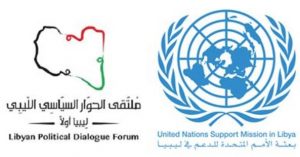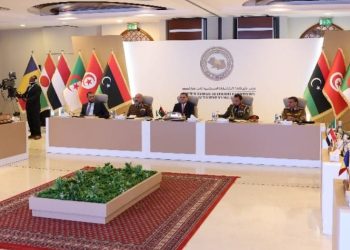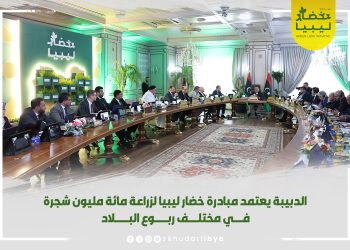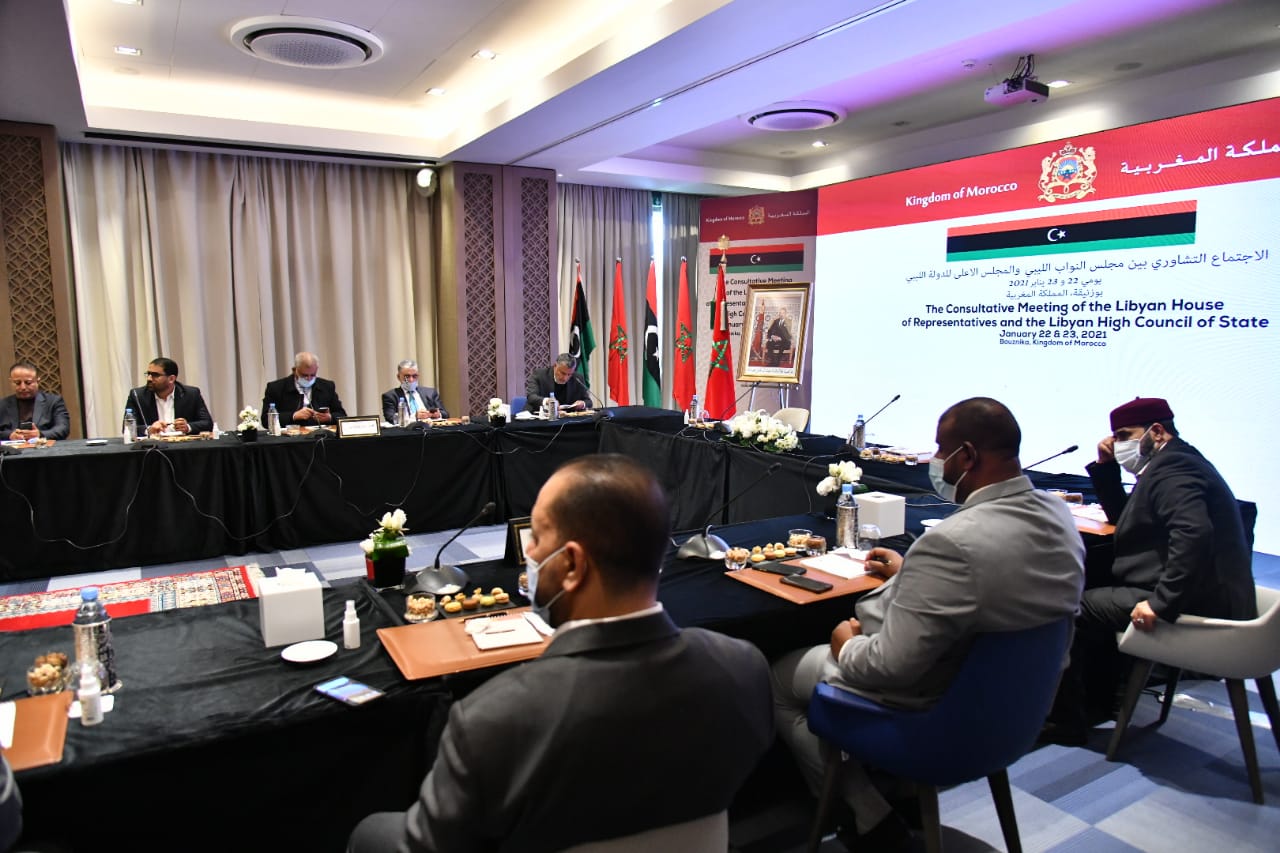By Sami Zaptia.

London, 24 January 2021:
As the 90-day deadline for the withdrawal of all foreign troops and mercenaries from all Libya passed yesterday unfulfilled, UNSMIL promised continued support. The deadline had been set by Libya’s 23 October 2020 ceasefire agreed by the 5+5 Joint Military Commission (JMC).
Both the internationally recognized government in Tripoli and the pro-Khalifa Hafter forces are backed by foreign forces and mercenaries.
In its supportive statement yesterday, UNSMIL said the co-chairs of the International Follow-Up Committee for Libya Security Working Group (SWG), represented by the African Union, France, Italy, Turkey, the United Kingdom and the United Nations Support Mission in Libya (UNSMIL), met on 20 January 2021 with the 5+5 Joint Military Commission (JMC).
It reported that the co-chairs commended the achievements of the 5+5 JMC to date, as well as their dedication and hard work as they continue to work in tandem in support of the Libyan people. The participants reiterated their full and continued commitment to the implementation of the 23 October 2020 ceasefire agreement as the deadline set draws near for the departure for the departure of all foreign fighters and mercenaries from Libya,
It went on to say that the co-chairs urged Libyan political leaders, to take all necessary measures to accelerate the implementation of the ceasefire, prioritising the opening of the Coastal Road between Abu Grein and Sirte, as well as the immediate repatriation of all foreign fighters and mercenaries. They reiterated their commitment to facilitating the work of the 5+5 JMC, through enhanced cooperation and their continued support to the political process.
Analysis
On the 90-day anniversary of the signing of the 23 October ceasefire, analysts and critics have noted that, both sides have been reinforcing their military positions.
There have been numerous social media reports/photos over the last 90 days purportedly of trenches built around Sirte and Jufra by the pro-Hafter forces as well as aircraft landing allegedly with supplies.
There have equally been reports of increased munitions arriving from Turkey at Misrata port and at the Al-Witya airbase to reinforce the Tripoli government.
Lack of trust, need for ceasefire monitors?
It will be recalled that it was decided that due to the lack of trust between the two Libyan conflicting parties, independent, international ceasefire monitors would be dispatched to the Sirte-Jufra ceasefire line.
On 31 December, United Nations Secretary General Antonio Guterres called for the formation of an international committee to monitor Libya’s ceasefire.
He had called for the formation of a monitoring committee comprising civilians and retired military personnel from international bodies such as the African Union, the European Union and the Arab League.
“I call on all concerned local, regional and international bodies to respect the outcome of the ceasefire agreement and to ensure its implementation without delay,” Guterres’s said.
“I urge Member States and regional organizations to support the mechanism for implementing the ceasefire, including the provision of personnel for observation under the supervision of the United Nations.”
He also called on ‘‘All countries to abide by the arms embargo imposed by the United Nations on Libya, which is subject to flagrant violations.”
Subsequently, UNSMIL reported in a 9 January statement that ‘‘the Mission reaffirms that it foresees the deployment of a limited number of impartial, unarmed, non-uniformed, international monitors, to complement the Libyan monitors deployed by the 5+5 JMC.’’
On 18 January Guterres confirmed the appointment of Ján Kubiš (Jan Kubis) of Slovakia as his Special Envoy on Libya and Head of the United Nations Support Mission in Libya (UNSMIL).
Finally, on 20 January Joe Biden was inaugurated as the new U.S. President.
It will be seen if these new factors will play a decisive positive role in pushing Libya’s ceasefire agreement forward.
These come in parallel with constitutional progress made by the House of Representatives and High State Council talks as well as the progress made by the Libyan Political Dialogue Forum (LPDF) in choosing Libya’s next interim government to guide it to the planned 24 December 2021 elections.
A reminder of the 23 October ceasefire agreement
It will be recalled that the 23 October immediate and permanent ceasefire in all parts of Libya agreed by the 5+5 Libyan Joint Military Commission (JMC) during talks in Geneva called for:
- The withdrawal of all forces from fighting fronts
- The withdrawal of all foreign mercenaries and forces from Libya within 90 days from 23 October
- The suspension of all training of troops domestically and abroad
- The suspension of all international defence agreements
- The formation of a Joint Operations Room for a joint police and military force
- The identification and categorization of all militias and a mechanism for their reintegration (DDR).
- Confidence-building measures by resuming travel between west and east Libya
- Ending hate speech
- Exchanging prisoners
- Reorganizing the Petroleum Facilities Guards (PFG)
- Monitoring of the ceasefire
- Referring the agreement to the UN Security Council to adopt in a Resolution.
UNSMIL welcomes prisoner exchange as part of ceasefire agreement | (libyaherald.com)
Immediate and permanent ceasefire agreement throughout Libya signed in Geneva | (libyaherald.com)
UNSMIL welcomes call for ceasefire by both conflicting Libyan parties | (libyaherald.com)
The Hafter-aligned PFG announces resumption of the export of stored oil and gas | (libyaherald.com)










